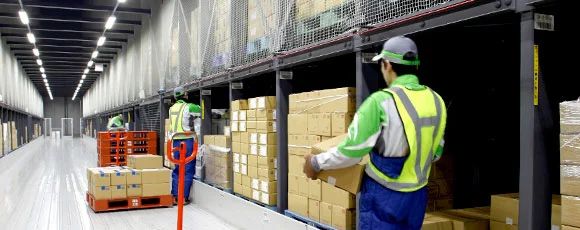
Demand for foreign workers increases to ensure human resources for the logistics sector, despite efforts to increase automation
Japan's demand for foreign workers is high due to factors such as a falling birth rate and a significant labor shortage in the transportation and logistics sector. Under the expanded program, highly skilled foreigners will be recruited as drivers in the road transport sector, including buses, taxis and trucks, by certified companies.
Language proficiency requirements, especially for bus and taxi drivers in contact with passengers, include passing level N3 of the Japanese Language Proficiency Test. And in the rail sector, skilled workers will take on roles such as manufacturing rail cars, maintaining tracks and operating as drivers, conductors and station staff. In addition, activities related to labor-intensive industries, including textiles, iron and steel and printing, are also included in the program.
Foreigners with No. 1 visas must demonstrate professional and Japanese language skills, while No. 2 visas allow unlimited extensions and the possibility of permanent residence, allowing workers to bring their families. Japan.
The Japanese government's move to expand the visa program for skilled workers coincides with efforts to reform the foreign trainee program, aimed at addressing issues such as labor rights and wage violations.
The new program will facilitate trainees' transition to a Specified Skilled Worker visa number 1 by allowing them to change workplaces within the same industry under specific conditions while also obtaining necessary skills.















